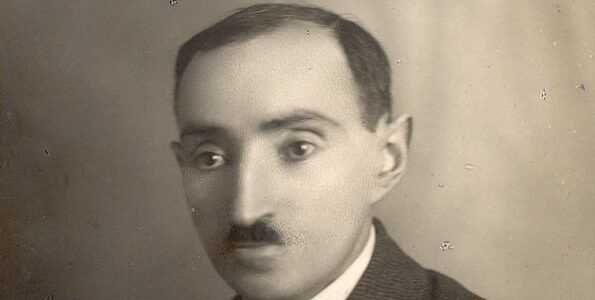
A Lithuanian translation of interwar Jewish author Kalmen Zingman’s book “On the Spiral Staircase” was recently published by the Hubris publishing house. Goda Volbikaitė translated it.
What can this novel written in 1925 and only now available in Lithuanian tell today’s readers? First of all, it talks about Kaunas. The translation of this book is also a kind of proof Kaunas wasn’t just a Lithuanian city. People of other ethnicities also lived there whose works can (and should) be listed in our literary canon. We spoke with the translator of this book about the little-known figure of Kalmen Zingman, spiral staircases, the Aleksotas aerodrome, Slobodka and Yiddish literature.
Just three years before his death, Zingman wrote in his diary: “I feel like that wonderful time when I will be recognized and famous isn’t far off.” Unfortunately his dream was not to come true. Why do you think Zingman wasn’t successful in literature and recognition?
For truth’s sake, it has to be said that no Yiddish writer working in Kaunas in the period between the two world wars got famous. We are talking about around 30 authors in total who lived in Kaunas for a shorter or longer time.
It’s very clear why they didn’t become famous in the Lithuanian context: there was a lack of interwar translations from the Yiddish language into Lithuanian, just as there is in our time. I should say Lithuania is still just in the early stages of discovering Yiddish literature. Sutzkever and Kulbak are better known now, and some rarer names such as Matilda Olkin and Yitzhak Rudashevski. But basically whole strata of Yiddish literature made in Lithuania are still unknown to the Lithuanian reader.
A different and perhaps more interesting question would be, why haven’t they received recognition in the context of Yiddish literature? Probably the main reason is that we are talking about very young, beginner writers who gathered in Kaunas when it became the provisional capital of Lithuania. We would remember the city had almost no Yiddish literary tradition before that. It was an entirely new idea to write Yiddish literature here. From the testimonies of the writers themselves, we find out they didn’t have an easy time of it at all. There were established centers of long-standing in the world of Yiddish literature: Warsaw, Kiev, Moscow, New York, Vilnius–cities were Yiddish literature was composed for a long period, where there was literary life and where notables gathered. In this context it was difficult for Kaunas to emerge as some new kind of center: on the international stage it always remained on the periphery of Yiddish literature, a backwater. Writers who immigrated in the interwar period saw greater success, for example, the poet David Fram and writer Sora Aizen [?] found greater notoriety in South Africa, Yudika (Judith Tsik) in Canada, and so on. In Kaunas they only started their literary careers.
Full article in Lithuanian here.
Publisher’s page with Lithuanian translation on sale here.


